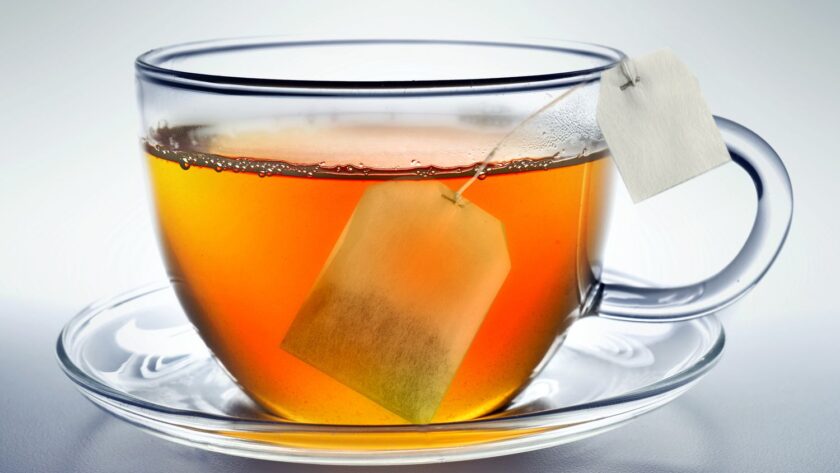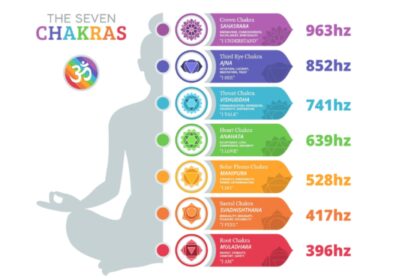Tea has been a beverage of choice for centuries and is widely consumed across the globe. It is often touted for its various health benefits, including boosting metabolism and improving cognitive function. However, recent studies have revealed that many popular tea brands contain toxic chemicals and pesticides that can harm gut health and overall wellbeing.
Pesticides are chemicals used to protect crops from pests and disease, and while they may be effective in doing so, they can also have harmful effects on human health. Pesticides can accumulate in the environment and in the bodies of animals and humans, leading to a range of health problems such as cancer, birth defects, and damage to the nervous system.
One of the main ways that pesticides can harm gut health is by disrupting the balance of beneficial bacteria in the gut. These bacteria, collectively known as the gut microbiome, play a crucial role in maintaining digestive health, regulating the immune system, and producing essential nutrients.
Research has shown that exposure to pesticides can alter the composition of the gut microbiome, reducing the number of beneficial bacteria and increasing the abundance of harmful bacteria. This can lead to digestive problems such as bloating, diarrhea, and constipation, as well as more serious health issues like inflammatory bowel disease (IBD) and autoimmune disorders.
In addition to disrupting the gut microbiome, pesticides can also damage the lining of the gut. The gut lining is a crucial barrier that prevents harmful substances from entering the bloodstream, and damage to this barrier can lead to a condition known as leaky gut syndrome.
Leaky gut syndrome occurs when the lining of the gut becomes permeable, allowing toxins, bacteria, and other harmful substances to enter the bloodstream. This can trigger an immune response and lead to inflammation throughout the body, which has been linked to a range of health problems, including IBD, autoimmune disorders, and even mental health issues like depression and anxiety.
Furthermore, many pesticides contain chemicals known as endocrine disruptors, which can interfere with the normal functioning of hormones in the body. Hormones play a crucial role in regulating various bodily functions, including digestion, metabolism, and immune function, and disruption of the hormonal balance can have far-reaching effects on overall health and wellbeing.
An investigation led by CBC News studied the pesticide levels in popular tea brands:
-
The brands and products that were found to contain illegal pesticides are:
- Tetley: Long Leaf Green Tea and Pure Green Tea
- Twinings: Earl Grey, English Breakfast, Classic Lady Grey, and Classic Assam Tea
- Celestial Seasonings: Sleepytime Kids Goodnight Grape Herbal, Sleepytime Herbal Teas, Green Tea Raspberry Gardens, Green Tea Peach Blossom, Green Tea Honey Lemon Ginger, English Breakfast Black K-Cup, Antioxidant Max Dragon Fruit, Antioxidant Max Blood Orange, Antioxidant Max Blackberry Pomegranate, and Authentic Green Tea
- Uncle Lee’s Legends of China: Jasmine Green Tea and Green Tea
- No Name: Black Tea
- Lipton: Yellow Label Black Tea, Pure Green Tea, Darjeeling Tea, and Clear Green Tea
- Signal: Orange Pekoe
- King Cole: Orange Pekoe
During the investigation, it was discovered that a shocking number of all the teas tested contained illegal amounts of pesticides and various chemicals such as Endosulfan and monocrotophos.
While many tea brands have been found to contain high levels of pesticides, there are still safe options available for consumers. Organic Numi Tea, Organic Traditional Medicinals, and Stash Organic Tea are just a few examples of pesticide-free tea brands that can help protect gut health. They have great options, are organic and much healthier for your body as a whole, especially your gut!
In addition to choosing pesticide-free tea brands, there are also other steps that can be taken to support gut health and reduce exposure to harmful chemicals. Eating a diet rich in fiber, fruits, and vegetables can help promote a healthy gut microbiome, while avoiding processed foods, sugar, and artificial sweeteners can help reduce inflammation and support digestive function.
Consuming probiotics and prebiotics, either through supplements or through fermented foods like yogurt and kefir, can also help support gut health by introducing beneficial bacteria into the gut.
Finally, incorporating detoxifying foods like spirulina into the diet can help cleanse the body of toxins and promote overall wellbeing. In order to effectively remove pesticides from your gut and body it is recommended to take activated charcoal to bind to these things within the body to pull them out. You can get activated charcoal in powder or capsule form for 10% off by clicking this link. Activated charcoal is also good if you have a tummy ache, food poisoning or drank too much alcohol. It helps to purify and remove toxicity from the liver.
In conclusion, the presence of pesticides in popular tea brands is a cause for concern, as exposure to these chemicals can harm gut health and overall wellbeing. However, by choosing pesticide-free tea brands and making simple lifestyle changes to support gut health, it is possible to reduce exposure to harmful chemicals and promote optimal health and wellbeing.




